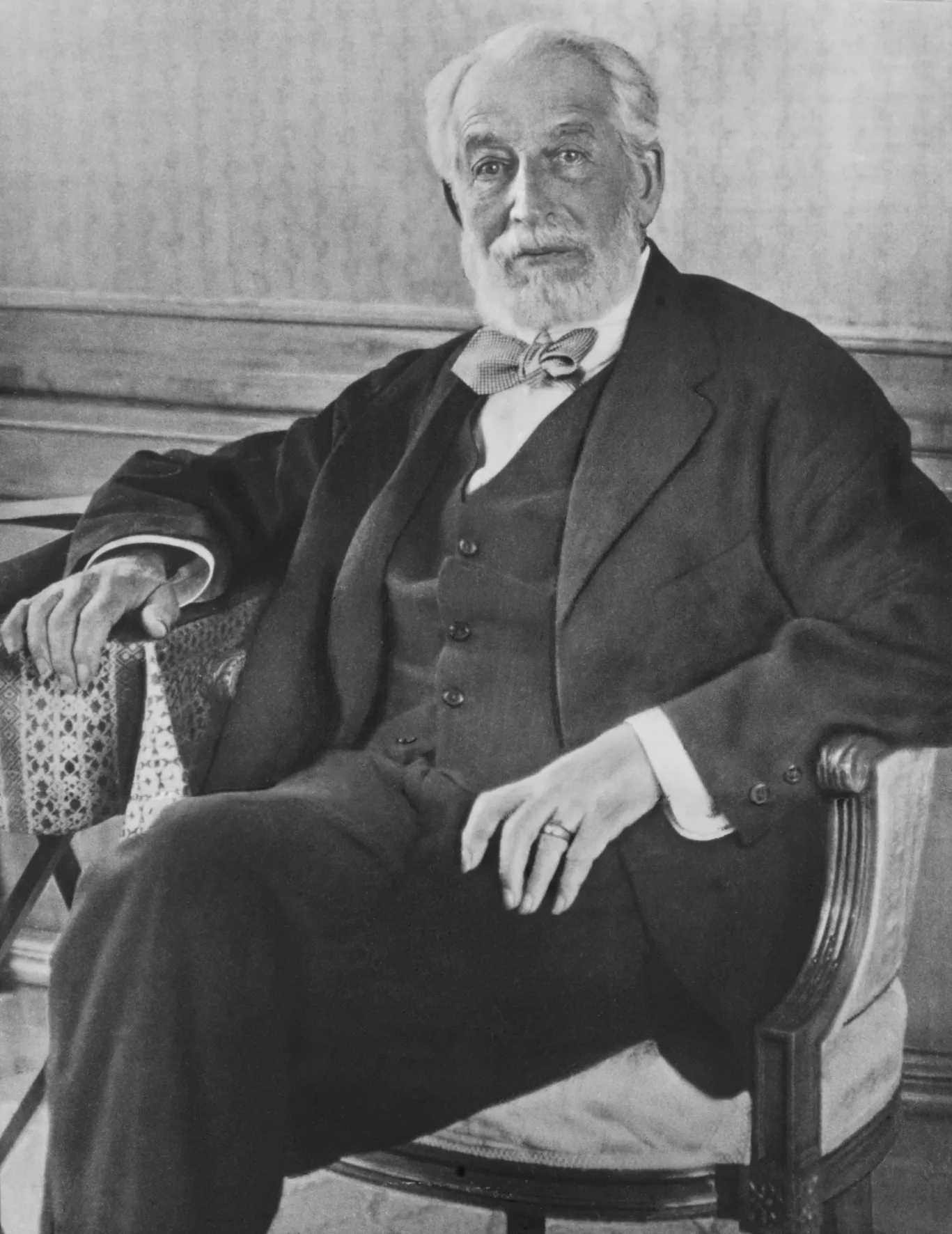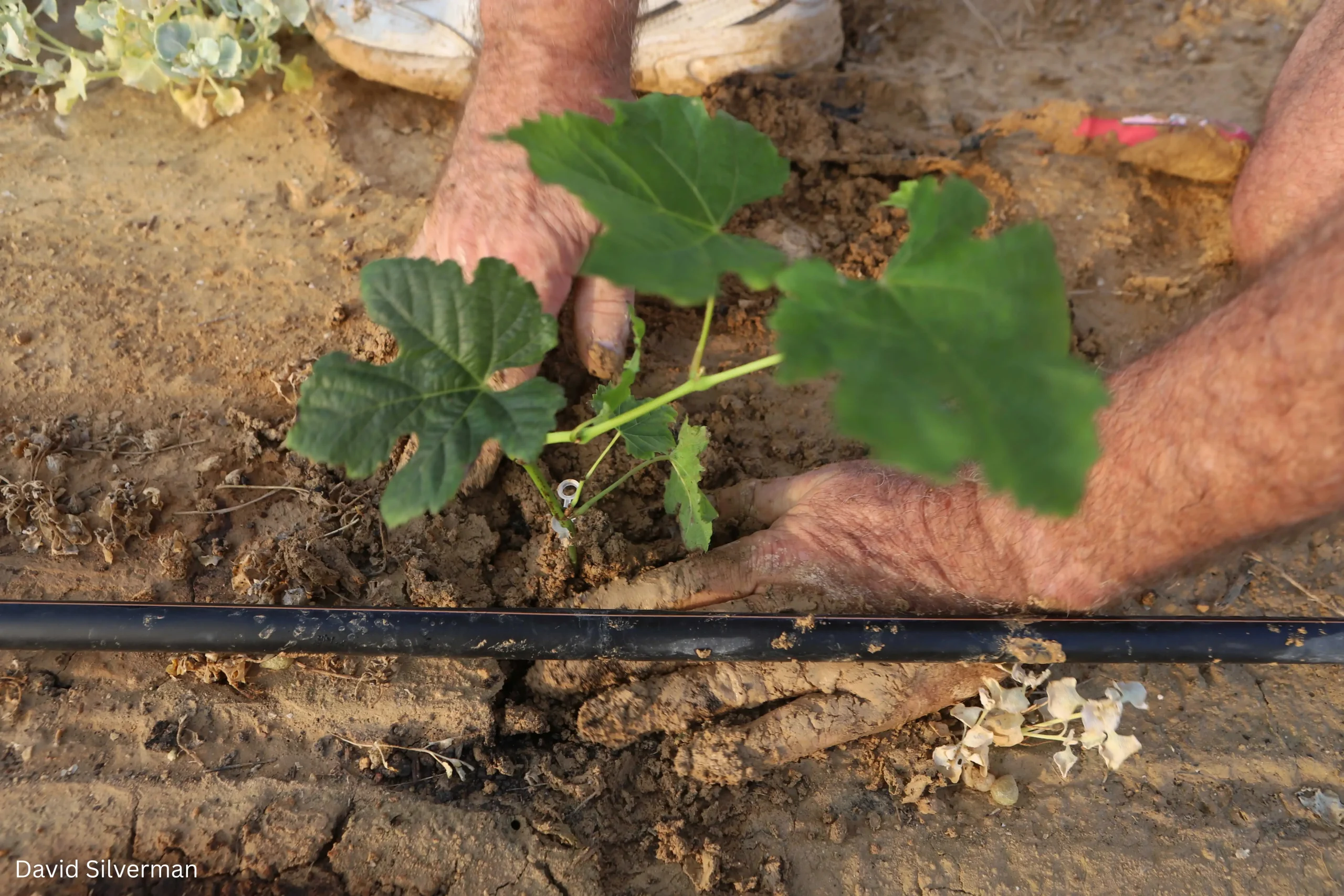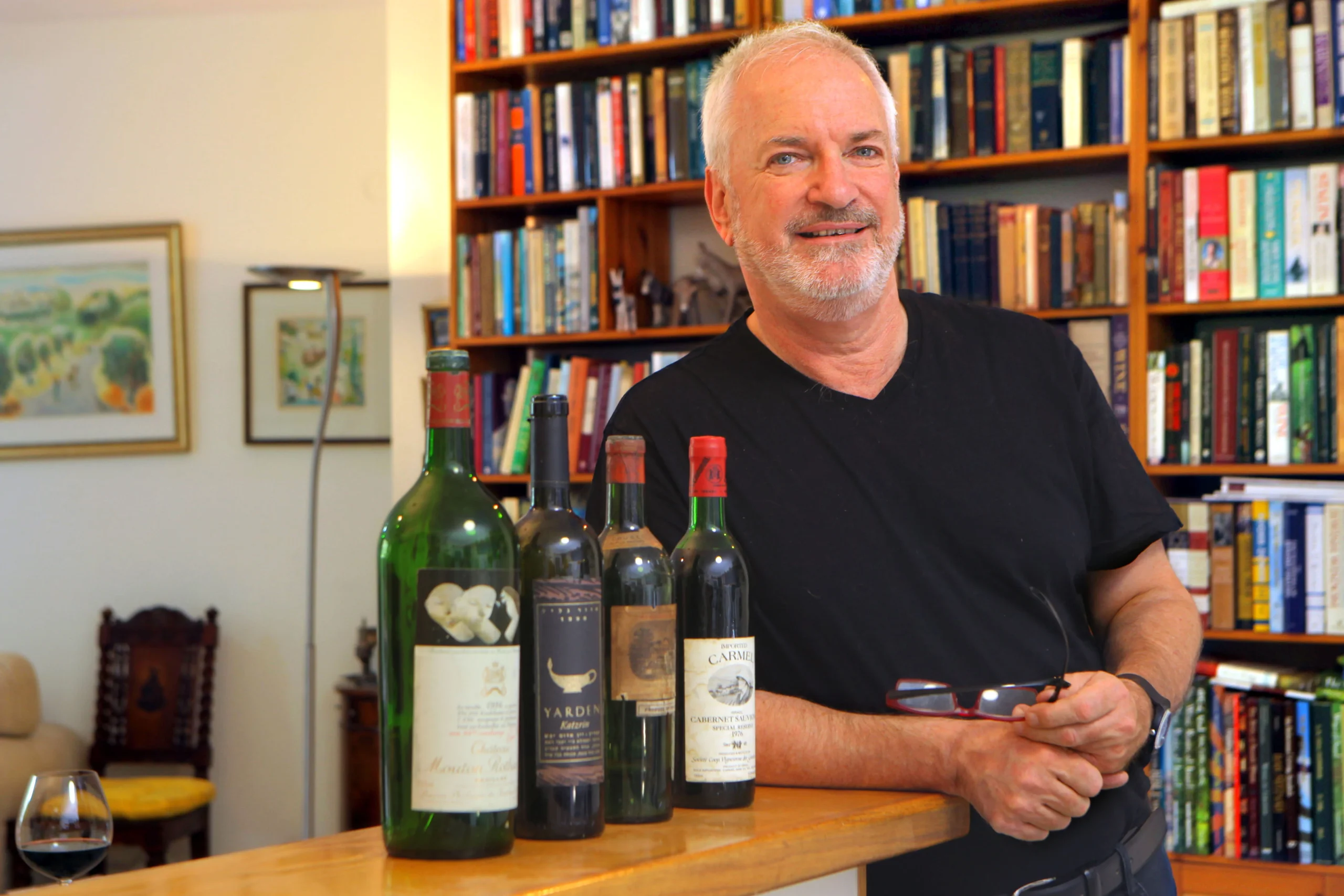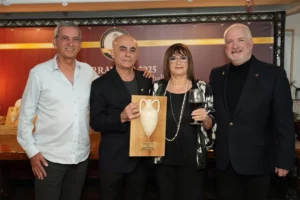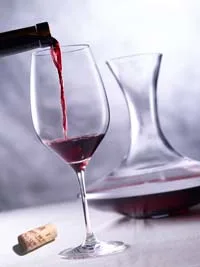Yossi Shor comes from a long line of winemakers. His family have been making wine since 1848. They started in the Old City of Jerusalem, moved to Beit Israel and settled in Mishor Adumim. Generation after generation they continued making wine as a profession….for over 170 years.
When they started, wine was made in small casks from Arab grown grape varieties in Hebron. As wine developed in the country, bottles replaced casks, and then grapes like Alicante (pre State) and Carignan (post State) replaced the Hebron varieties. The family at one stage owned five or six wineries at a time when there were not many wineries in Israel. However, if truth be told, the Shor family still made liquid religion, which is a term to describe kiddush wine and grape juice, along with inexpensive, good value table wines, mainly sold in supermarkets. In the meantime, a quality revolution was happening in Israeli wine. The use of classic varieties, planted in high altitude vineyards, the introduction of new world technology and the employment of internationally trained winemakers, changed the face of Israeli wine.
Suddenly the vision of an industry as whole changed to quality wines. By the 2000’s Cabernet Sauvignon had replaced Carignan as the staple grape variety of the country and this offered potential that did not exist before.
Yossi Shor was brought up in tune with the rhythm of wine. The bustle of the harvest, the aromas of fermenting wine, the silence of the sleeping wine in the barrel cellar and the tinkle of glass on the bottling line. These were the sounds and smells he knew from childhood. His grandfather, Elisha z”l, and his father, Moshe, worked according to the seasons of the vine and wine. It was not a profession, but a way of life.
However, Yossi was not happy with the same old way. He grew up with the beginnings of the wine revolution, fermented first by the Golan Heights Winery, around him. He noticed how other large wineries like Carmel Mizrachi, Efrat and Eliaz changed their names to Carmel Winery, Teperberg and Binyamina, and moved more to table wines in an attempt to change image. He was sharp, acutely aware of what was happening in the wide world outside the family winery. Furthermore, he had a dream to produce high quality wine.
This was when Yossi Shor, seventh generation, decided to combine the winemaking culture and tradition of Israel’s number one winemaking family, with a new pursuit of excellence. He founded a new, premium winery, which he called 1848, to pay respect to the generations that came before. However, this winery was different in every respect. It was separate, owned and managed by him and it had the objective of making small quantities of handcrafted wines to the highest standard possible.
To show his seriousness, he decided to invest in quality. He employed some of the leading consultants in the country in viticulture, winemaking and wine marketing. Dr. Pini Sarig, one of the country’s leading viticulturists, advised on a new policy regarding planting and management of vineyards. Shor understood that the decision to make high quality wine started in the vineyard. The new idea was to grow wine not just grapes. Sarig is well-known in Israeli wine circles, for his work with the Golan Heights Winery and Recanati Winery, amongst many others,
He then employed Dr. Arkadi Papikian, as winemaking consultant. Papikian had been a winemaker at Carmel Mizrahi, where we worked together, and then later he was the winemaker at Dalton Winery and Amphorae Vineyards. He is one of the leading winemaking consultants in Israel. This was a clear statement of intent by Yossi Shor.
Then he employed a new winemaker. Ilan Assouline was born in Paris, growing up with a fascination about science and food. His family hailed from Algeria, with a strong wine culture. Not so long ago, Algeria was one on the world’s most prolific producers of wine. He made Aliyah to Israel with his family. He studied Bio-Chemistry and Food Science in Israel. He thought that a career in winemaking would be the perfect profession to combine these two interests and decided to return to France to study oenology at the University of Bordeaux. He graduated from Bordeaux, arguably the wine capital of the world, following the footsteps of winemakers Assaf Paz of Vitkin Winery and Olivier Fratty of Teperberg Winery. After this he gained valuable work experience in different regions of Bordeaux, including Pessac Leognan, Pomerol and Saint Emilion. In 2011 he joined 1848 Winery as winemaker. He is quiet and modest in character, yet also passionate about wine. He is a purist and classicist, and pays attention to the smallest details in vineyard and winery. He is married with four children and lives in Talpiot in Jerusalem. He divides his time between vineyard, winery and family, with a humble professionalism and a hunger to continue learning as he gains experience.
In the effort to make high quality wine, the 1848 Winery immediately understood the importance of having quality vineyards in the best wine producing areas. Whereas grapes had been considered the necessary raw material with which to make wine, the new company understood that great wine was made in the vineyard. As such, new long-term agreements were made with growers, new vineyards planted with classic varieties and specific varieties were matched to the most suitable wine growing region. They started to grow wine, not just grapes.
The vineyards come from specific areas: the Golan Heights, the Galilee and the Jerusalem Mountains. The Golan vineyards are in the Southern Golan. The Golan Heights is a volcanic plateau that overlooks the beautiful Sea of Galilee, and is overlooked by Mount Hermon. Soils are volcanic tuff and basalt stone. The Galilee vineyards are in the Kfar Tabor area, near Mount Tabor. Here, soils are a patchwork of chalk, volcanic and terra rossa, sometimes even in the same vineyard. The Jerusalem Mountains region is a high elevation, with thin layers of terra rossa on a deep bedrock of limestone. The wines come under the official appellations of the Galilee and Judean Hills.
The 1848 Winery refers to the owning family as the ‘Galina Shor’ family. This pays homage to the family’s original name ‘Galin’. When Yitzhak Galin decided to found a winery, he did not have the necessary license from the Turkish authorities. Fortunately, his sister had married a Baruch Shor, who had a license for trading in alcohol. So, they changed their name to Shor, used Baruch Shor’s license and opened a winery in 1848 in the Old City of Jerusalem. Amongst the family artifacts, they found an old stamp showing a still and the word Galina on it. The differences between Galin and Galina probably relate the differences between the masculine and feminine in the founder’s mother tongue.
The 1848 wines are carefully presented to celebrate the different generations of the winemaking family. Each label recalls a particular generation. The Second Generation wines are the winery’s entry level, more drinkable wines, and these rise to the higher quality, more exclusive Seventh Generation. The fruit forward Second Generation reds are aged 10 months in oak, whilst the more complex Seventh Generation reds are oak aged for 18 months. The Fourth, Fifth and Sixth Generations lie in between, on the price and oak aging spectrum.
Yossi, quite apart from having a desire to make great wine, is also an innovative marketer who has the unique ability of thinking out of the box. The Fourth Generation label features famous varietals associated with specific countries or regions. These include Marselan, Barbera, Shiraz, Malbec and Chenin Blanc. The flags on the label of the countries where the varieties thrive, can confuse the customer. Make no mistake these are all Israeli wines, from fruit grown in Israel.
The Sixth Generation label features blends suitable for special occasions. As such there are wines for ‘Party Time’, ‘Family Events’, ‘For Two’ and ‘Moments of Success’. Wines to match a mood. Sometimes these ideas are hard for the consumer to follow, but in the days when wine marketing is boring and conservative, it makes a refreshing change.
The cherry on top of the cake are the 1848 Winery Reserve and Special Reserve wines. There is a Reserve Cabernet Sauvignon and a Reserve Merlot. The Special Reserve is a Bordeaux style blend of made from Cabernet Sauvignon, Cabernet Franc, Merlot and Petit Verdot from Galilee vineyards. The 1848 wines have gained third party recognition by winning a series of gold medals in international competitions.
I would classify the wines as very well made within their relative price categories. They have good varietal typicity, in a deep, fruit forward ‘New World’ style. The leading wines, in particular the Seventh Generation, Reserves and Special Reserves, have great depth, full body and a rich complexity.
Yossi Shor, by creating 1848 Winery has shown he has been able absorb 170 years of wine culture and family traditions, whilst taking on board modern ideas and advanced state-of-the-art technology, both in vineyard and winery. The result has without doubt brought the Shor family into the 21st century. As for 1848 Winery, it is one of Israel’s most interesting and innovative boutique, premium wineries today.
Adam Montefiore has advanced Israeli wines for over 30 years. He is referred to as the ambassador of Israeli wine and is the wine writer for the Jerusalem Post. www.adammontefiore.com












